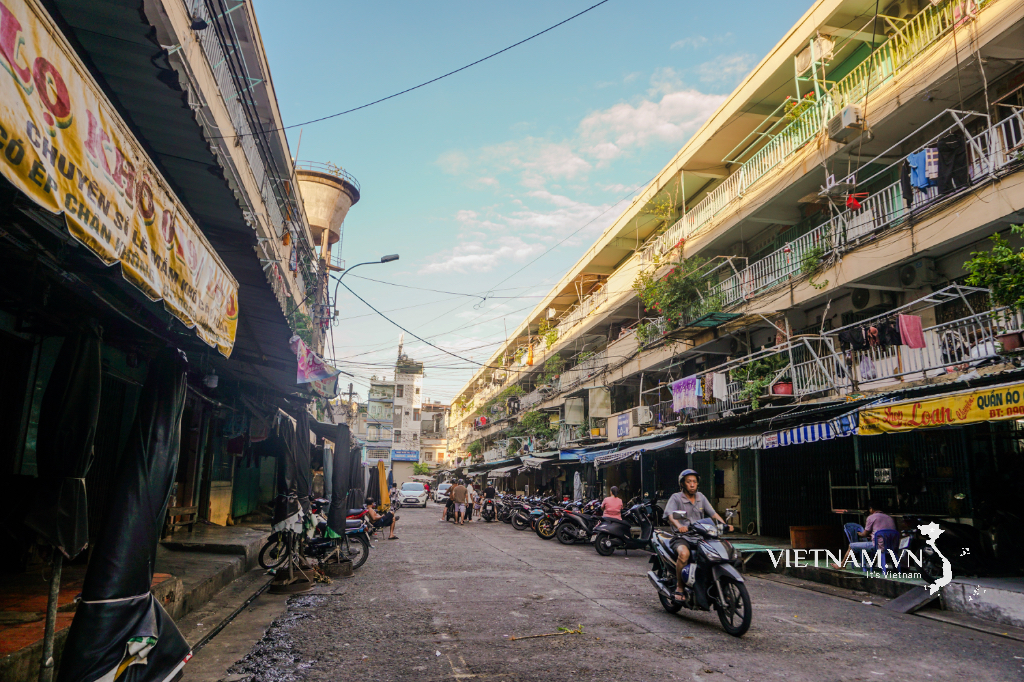
However, in Vietnam in general and Hanoi in particular, the use of plastic bags for food and various goods remains quite common, and is even excessively abused by the public. This situation has been and continues to cause double waste.
A survey conducted at numerous local markets, makeshift markets, stalls, and clothing stores in the wards of Khuong Dinh, Thanh Xuan, Dong Da, O Cho Dua, Kim Lien, and Hoan Kiem in Hanoi revealed that most small traders and businesses use a large number of plastic bags to hold goods for customers. Because plastic bags are convenient, durable, and especially inexpensive, instead of using environmentally friendly alternatives, both sellers and customers freely use plastic bags for daily purchases.
According to our findings, Hanoi's authorities and localities have implemented numerous programs to reduce the use of plastic bags. In particular, the Hanoi Women's Union has launched a campaign among its members to limit the use of plastic bags and single-use plastic items. Accordingly, female officials and members in the area have actively responded, with many switching to using reusable plastic baskets and pushcarts to carry goods when shopping. However, the movement has not yet spread widely; the majority of housewives and vendors still use plastic bags to carry goods and food.
According to observations by reporters from Hanoi Moi Newspaper, most plastic bags in markets and shops are non-biodegradable (plastic bags – these are subject to environmental protection tax). According to Article 8 of the Law on Environmental Protection Tax No. 57/2010/QH12, the environmental protection tax on taxable plastic bags ranges from 30,000 to 50,000 VND per kilogram. However, in reality, the enforcement of this tax on taxable plastic bags in the city has not been strict; the average price per kilogram of plastic bags is only 35,000-45,000 VND depending on the type. Therefore, small traders still buy and use plastic bags to hold goods and food for customers. The fact that each family discards 5-10 plastic bags per day is common in many localities. This has caused double waste for many years without being rectified. Meanwhile, the use of biodegradable, environmentally friendly plastic bags has not received much attention from businesses and shop owners.
It is known that, to reduce the use of plastic bags, most countries around the world , in addition to imposing high taxes on non-biodegradable plastic bags, mainly use environmentally friendly bags (paper bags, biodegradable bags). Supermarkets and stores charge a fee if customers need bags (plastic or other materials) to carry goods; they do not provide plastic bags for free. Therefore, people often proactively bring their own bags and containers to carry goods, gradually abandoning the habit of using plastic bags and significantly reducing the amount of plastic bags discarded into the environment.
Determined to implement solutions to reduce plastic emissions, the Hanoi City People's Council recently passed a Resolution stipulating measures to reduce plastic emissions in the city. According to this resolution, from 2027, markets and convenience stores will no longer provide free non-biodegradable plastic bags. Furthermore, the resolution stipulates that from 2028, markets and convenience stores will not circulate or use single-use plastic products or non-biodegradable plastic packaging for food, except for products and goods already packaged in non-biodegradable plastic.
Hanoi residents hope that, along with the implementation of this resolution, the city's authorities will strictly enforce the tax on taxable plastic bags, and soon address the double waste caused by the widespread use of plastic bags as is currently the case.
Source: https://hanoimoi.vn/su-dung-tui-nilon-lang-phi-kep-710317.html



![[Photo] General Secretary To Lam working with Ambassadors and Heads of Vietnamese representative offices abroad attending the 14th National Congress of the Party](/_next/image?url=https%3A%2F%2Fvphoto.vietnam.vn%2Fthumb%2F1200x675%2Fvietnam%2Fresource%2FIMAGE%2F2026%2F01%2F25%2F1769327811288_a1-bnd-4520-9649-jpg.webp&w=3840&q=75)




































































































Comment (0)